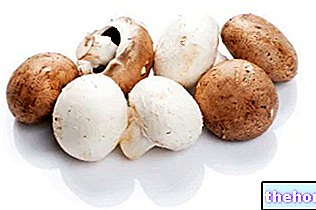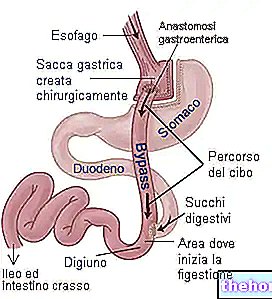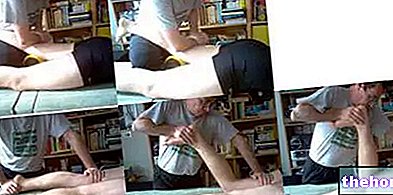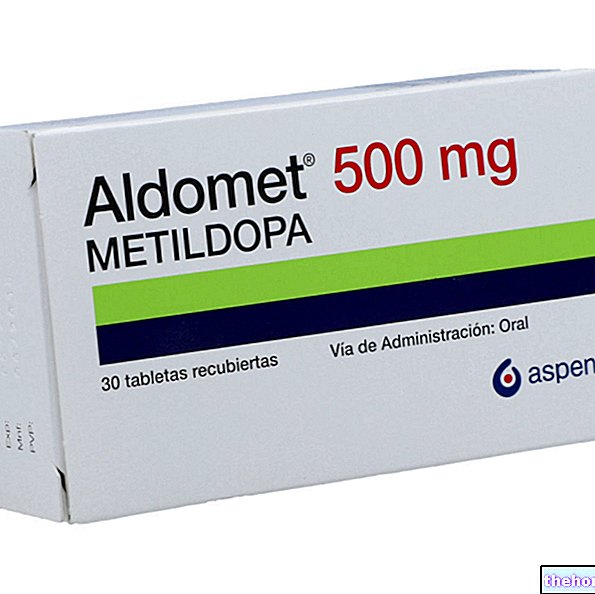Specifically, natural remedies for constipation consist of: behavioral interventions, dietary interventions, herbal preparations with a laxative effect and other special remedies, which cannot be placed in any of the previous categories.

Brief introduction
Before reviewing the natural remedies for constipation, it is worth remembering some aspects concerning the latter.
Constipation or constipation is a defecation disorder that consists, in general, in the difficulty of evacuating stool.
Constipation can have a large number of causes. In fact, at its origin there may be:
- Incorrect habits and life behaviors (e.g. excessive sedentary lifestyle, low consumption of foods rich in fiber, excessive consumption of refined meat and simple sugars at the expense of fruit and vegetables, reduced water intake, voluntary suppression or postponement of the urge to defecate, etc. .).
- Psychological conditions (eg: anxiety and depression);
- Obstructive pathological conditions (eg: colon cancer, rectal cancer, etc.);
- Pathological conditions of a neurological type (eg: multiple sclerosis, Parkinson's disease, spinal cord injuries, etc.);
- Pathological conditions affecting the pelvic muscles (eg: anism);
- Pathological conditions of the hormonal type (eg: diabetes and hypothyroidism);
- Congenital anomalies of the digestive system (eg: Hirschsprung's disease);
- The constant intake of certain medicines (eg: antacids, antidepressants, diuretics, antiepileptics, antipsychotics, calcium supplements, etc.);
- The state of pregnancy;
- Other pathological conditions (eg: irritable bowel syndrome, hypercalcemia, muscular dystrophy, etc.).
If constipation is accompanied by symptoms such as blood in the stools, vomiting, fever, anemia, violent abdominal cramps and thin stools, or alternates with diarrhea, it represents a problem that should be referred immediately to the attention of the attending physician; the same is true when constipation occurs suddenly in an individual, who has always presented a certain regularity of the alvo.
This article aims to treat the most common constipation, the one that depends on incorrect life habits and behaviors or psychological conditions, and which as such can benefit from so-called natural remedies.
Important note: in the article dedicated to the problems of constipation, it was seen how it is necessary to set up a therapeutic path consisting of various steps, which starts from simple behavioral and dietary interventions and arrives, in case of failure of the previous ones, to real pharmacological measures.
For further information, see also:
- Natural laxatives
- Laxative herbal tea
- Foods against constipation
- Diet against constipation
In light of this, once in the bathroom, it is important to obtain a "natural evacuation by waiting for the right stimulus, without excessive effort. In all this, reading a newspaper or magazine, to relax, and taking a position can help." squatting (squat), in which the abdomen is compressed against the thighs (NB: to obtain this position in a simple way, the experts recommend placing, near the toilet, a rise, on which to place the feet).
Readers are reminded that excessive efforts during defecation are to be avoided, also due to the fact that they predispose to the appearance of hemorrhoids and the fact that they represent a danger for people with cardiovascular disorders.
Clearly, physical exercise is of benefit, compared to constipation, if practiced consistently; its occasional practice, in fact, is of little help.
Curiosity: why does the suppression of the urge to defecate cause constipation?
The suppression and postponement of the stimulus to defecation slows down intestinal transit and this leads to an abnormal distension of the "rectal ampulla due to accumulation of feces; from the" anomalous distension of the "rectal ampulla, therefore, derives the loss of contractility on the part of this" last, loss of contractility which, together with the weakness of the pelvic floor muscles, determines a "further impediment to normal defecation (also referred to as rectal dyschezia).
The phenomenon of rectal dyschezia can begin already in childhood, following the interference of the parents in what are the intestinal habits of the child.
, the minimum daily dose of water is 2 liters; sports practice, hard work and recreational activities that require a certain physical effort clearly involve an increase in the volume of water to be consumed daily.
The advice of the experts, to anyone suffering from constipation and not only, is to always carry a bottle of water (in the office, in the gym, etc.), in order to provide for the correct hydration of the body.
People with a reduced thirst stimulus (eg the elderly) should have a glass of water per hour during the day, even if they do not feel the need at all.
They act against constipation, as they make the stool soft, compact and more voluminous.
However, it should be noted that they are only beneficial if accompanied by an adequate consumption of liquids, water in particular. In fact, combined with water, dietary fibers have a gelling action against the fecal mass and this facilitates the movements of peristalsis and evacuation.
How and when: according to nutritionists, the ideal dose of dietary fiber to combat constipation is between 18 and 32 grams.
In the table below, readers can see in which foods dietary fiber is particularly present.
Soluble dietary fibers
Insoluble dietary fiber
- Barley
- Oats and oat bran
- Rye
- Fruit
- Rooted vegetables such as potatoes or carrots
- Legumes
- Fresh fruit (apples, plums, berries, plums, pears, peaches, etc.)
- Onions
- Psylli seeds
- Bran
- Whole grains (wholemeal bread, wholemeal pasta, etc.)
- Green leafy vegetables
- Dried fruit
- Flax seed
Table. Foods richer in dietary fiber. In nature, there are two types of dietary fiber: soluble dietary fiber and insoluble dietary fiber. Of the two types, the one most suitable for combating constipation is the second; however, even the former offers a not insignificant contribution in remedying the difficulties in evacuating faeces.
Herbal preparations: natural laxatives
Among the herbal preparations with a laxative effect, the following are most often indicated: soluble fiber supplements (based on guar, guar gum, agar agar, glucomannan, etc.), laxative herbal teas based on frangula and intact linseed , anthraquinone laxatives (aloe juice, cascara, senna, rhubarb, etc.) and emollient drugs mallow and marshmallow (NB: it has a mild laxative power).
With regard to anthraquinone laxatives (which are products of a certain potency), it is important to specify that their use should not last for more than two weeks and that at least 3 days should elapse between individual intakes of these products. Failure to comply with these recommendations can lead to the appearance of colic irritation, hypotonia of the intestinal smooth muscles and, in some cases, hypokalemia and melanosis; the psychological dependence on the use of these laxatives should not be underestimated, a dependence that is difficult to correct.

How do laxatives affect bowel habits?
In most people, the regularity of the alvo is identified with at least one defecation every 24 hours.
After a complete evacuation induced by laxatives, there is a delay in the appearance of a new stimulus of even a few days. This is completely normal (it takes, in fact, time for a significant filling of the colon to occur); therefore, those who use laxatives should not worry and, above all, should not resort to other assumptions with the idea that the problem of constipation is still ongoing.
ARE HERBAL PREPARATIONS WITH A LAXATIVE EFFECT ALWAYS BLAND LAXATIVE?
Many people think that, due to their natural origin, herbal preparations with a laxative effect are always to be considered mild laxatives.
There is nothing more inaccurate. Some herbal preparations, in fact, produce such a drastic laxative effect, such as to make them similar to real drugs, with the risk of important side effects from abuse.
How and when: they help prevent hemorrhoids and anal fissures elements already considered in this article, namely: the consumption of foods with a high content of dietary fiber (in particular flax seeds, psylla seeds, bran, guar gum, etc.) , drink plenty of water, exercise regularly, do not force defecation in the presence of difficulty in evacuating stool and do not suppress the urge to defecate.
In addition, they have a "usefulness that is by no means negligible: avoid sitting for a long time and provide" accurate anal hygiene (we recommend washing with warm water and acid soap, while washing with cold water is to be avoided).
Remember that if the painful symptoms of hemorrhoids and anal fissures become severe and disabling, it is good to consult a doctor.
How and when: for the abdominal muscles, the classic toning exercises that are commonly performed in the gym are more than sufficient (NB: practicing a few sets of abdominals in the morning, immediately after waking up, can help to produce a natural stimulus to defecation) .
For the pelvic floor muscles, on the other hand, there are special exercises: the so-called Kegel exercises. To be performed after emptying the bladder, these exercises involve the contraction of the pelvic floor muscles for 5-10 seconds, alternating with the relaxation of these same muscles for an equal period of time, all for ten times (10 series) in at least 2-3 occasions a day. During the practice of Kegel exercises it is important not to contract the legs, buttocks and abdominal muscles, and not to hold your breath. For those who are not aware of it, the pelvic floor muscles are those that, during urination, allow you to stop the flow of urine.
Kegel exercises represent not only valid natural remedies for constipation, but also optimizers of the ability to control orgasm.




























